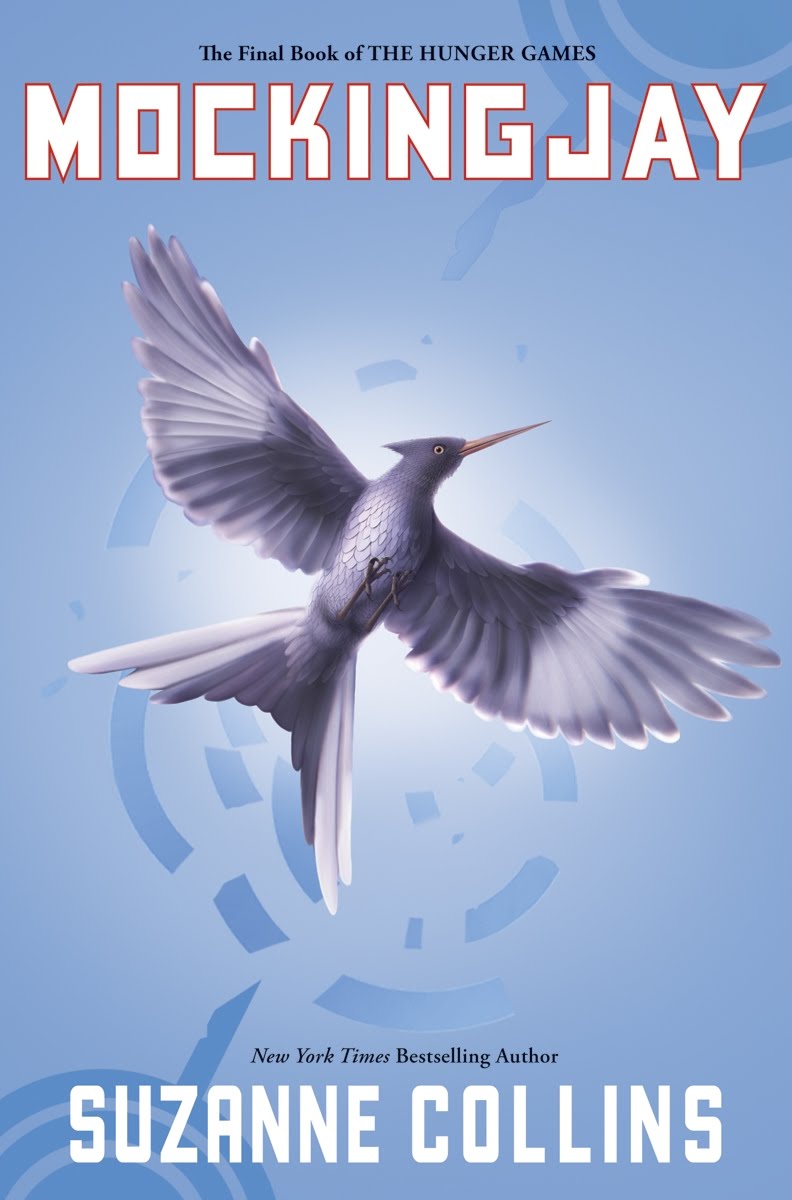
I've been on vacation this week (sort-of...the kids are out of school and we went to Georgia). That meant that I had time to read--Wow!!
The Mockingjay by Suzanne Collins is the third in the Hunger Games series and is a real page-turner. I'll confess that I haven't read the first two books, but I enjoyed the movies so much that I wanted to know how it ended and the book didn't disappoint. The plot centers around Katniss Everdeen, a 17 year old girl that has already survived two "battle to the death" challenges. She has become a rallying point for a rightful rebellion against the abuses of the elites in the Capital against the common workers in the Districts. Those in the Capital have every modern convenience while those in the districts are starving.
Several themes recur during the book like the use of propaganda to drive popular opinion, the value of human life, and the corruption that absolute power brings. In many ways, the ending takes on the same feeling as Animal Farm, by George Orwell. The new powers seem to be just as willing to treat life with indifference and manipulate public sentiment as the old leaders.
I was struck by the scale of the despair that runs as an undercurrent throughout the book. Katniss' emotions are driven by the state of her friends and relatives so she often seems tossed about like a bobble on a fishing line in a storm. She is the visible presence of the rebellion, the Mockingjay, but her only motivation is to protect her family and friends. She has rudimentary compassion for others, but is willing to sacrifice others to save those that give her peace of mind. Her life and the story lack any sense of transcendent value beyond her immediate circle and times.
Of course, as a God-friend, the most compelling absence was that of God himself. The book inadvertently shows the horror and despair of a Nietzschean (God is dead) worldview in stark reality. Technology and political manipulation are the rescuers and God is never even mentioned once. Elites abuse others because they can and no one will hold them accountable. When given resources, the commoners adopt a socialistic/militaristic distribution of scarce resources based on need and the value of the contribution that a person makes. Life has a rudimentary value, but no transcendent value. Suffering has no redeeming virtue. Innocence is a tool to be abused to manipulate others. Suicide or alcoholic escapism is the emotional normal. Love comes down to a matter of survival: those that help you and your family survive are those that you love. Only Peeta shows even a hint at unconditional love, and that is nearly tortured out of him. People often sacrifice themselves for the sake of the Mockingjay, but she is at a loss for why. Even when a new normal is achieved at the end of the book, the only hope is that they can teach their children something that will keep them from facing the same horrors but what they will teach about the meaning of their suffering they don't seem to know.
When Francis Shaffer spoke with those that carried this worldview, he would often come down to the question, "So why haven't you killed yourself yet?" Every character in the book seems to have a slightly different answer to that kind of question, but ultimately they are only a few decisions or tragedies away from despair. For a person who knows that there is a larger framework, an eternal destiny, a plan for our lives, and a hope for our future, the ache is palpable. Life doesn't have to be that way but the enemy has blinded their eyes. Their freedom to choose for themselves has become a prison of despair, as it always does.
"For the message about the cross is nonsense to those who are being destroyed, but it is God's power to us who are being saved." I Cor 1:18 (ISV)
Heaven help them. They will find help nowhere else.
No comments:
Post a Comment